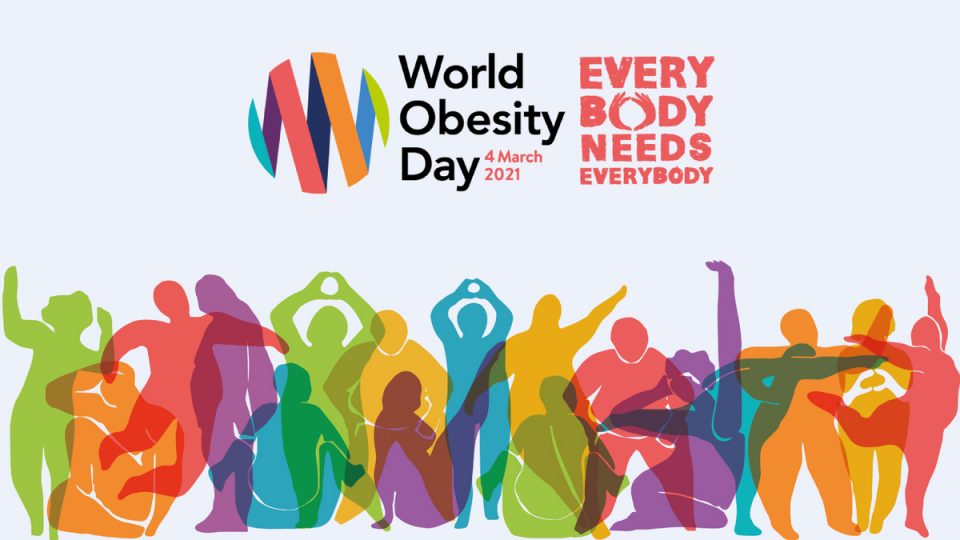Medical health and nutrition expressed concern over growing rate of obesity and over-weight people among Nigerians, calling on stakeholders and government to tackle the risk.
The experts made the call during an online conference to mark the 2021 World Obesity Day, organised by the Nigerian Heart Foundation (NHF) in Lagos.
They emphasised the need for healthy eating habits and exercises to prevent and control obesity.
The News Agency of Nigeria (NAN) reports that the theme of the 2021 World Obesity Day is “Everybody Needs Everybody”.
According to the experts, there is need to implement policies and programmes on physical exercises and healthy diet to combat the risk obesity and over-weight posed to Nigerian population.
Prof. Fatai Adeniyi, the Director, Exercise Is Medicine (EIM), Nigeria, an NGO, said obesity remained a very serious problem that required serious approach to tackle, such as awareness and advocacies on physical exercises.
Adeniyi said “obesity is a problem and one of the ways to combat it is through physical activities. Weight-loss programmes are necessary. There is the need for physical exercises for children and youths.”
The media practitioner, who decried the growing trend of locating schools at places that did not encourage physical activities for school children, urged stakeholders and governments to encourage physical exercises.
“The EIM, Nigeria, reaffirms that physical activities and exercise play key roles in the prevention and control of overweight and obesity.
“We call for strict implementation of existing policies and enactment of several others that are related to the prevention and control of over-weight and obesity,” he said.
On his part, Prof. Adebayo Adeyemi, the Director, Scientific Affairs, NHF, said schools should not be located where there were no facilities for physical exercises as part of efforts to checkmate the growing trend of obesity.
Adeyemi, who emphasised the importance of lifestyle, diet and exercise in tackling obesity, called for a roadmap to checkmate the condition and over-weight across all ages and groups.
Prof. Tola Atinmo, the Chairman, NHF Nutrition Committee, who maintained that obesity was one of the risk factors for COVID-19 fatalities, called for affordable healthy foods, space for safe walking, cycling and recreation.
Atinmo said “it is important for us to face the problem and make sure it is reduced to a very low level. Diet and exercise are important and critical. We should lower our sugar, carbohydrate and fat consumption.”
Prof. Olugbenga Ogunmoyela, the Chief Executive Officer, Consumer Advocacy for Food Safety and Nutrition (CAFSANI), said that low consumption of fruits and vegetables had increased the risk of obesity.
Ogunmoyela, who decried increase in sugar consumption in the country, called for increased awareness on healthy fruit and vegetable diets.
He said “we should sensitise and educate people on food safety and healthy eating. We should protect consumers and increase nutrition education.”
Also, Prof. Wasiu Afolabi, the President, Nutrition Society of Nigeria, said adolescents and market women who sit for long hours daily were at higher risk of obesity.
According to him, the disease is more in rural areas than urban, based on research.
Afolabi added that “government should take the lead in enacting policy on healthy diet, safe and quality foods by controlling the nation’s porous borders from where unsafe food items gain entry into the country.”
Mrs Edirin Metseagharun, the Chief Executive Officer, Project Healthy Kids, also urged government to provide more facilities in schools for physical exercises, while also encouraging children to be active and eat healthy.
Metseagharun said “a major contributory factor is the reduction in the time allocated for physical exercises. Many schools now use recess time for studies.”
Dr Kingsley Akinroye, the Executive Director, NHF, who urged Nigerians to avoid over-nutrition, under-nutrition, bad nutrition, said that advocacies on healthy lifestyle and regular exercise would help to prevent obesity.




